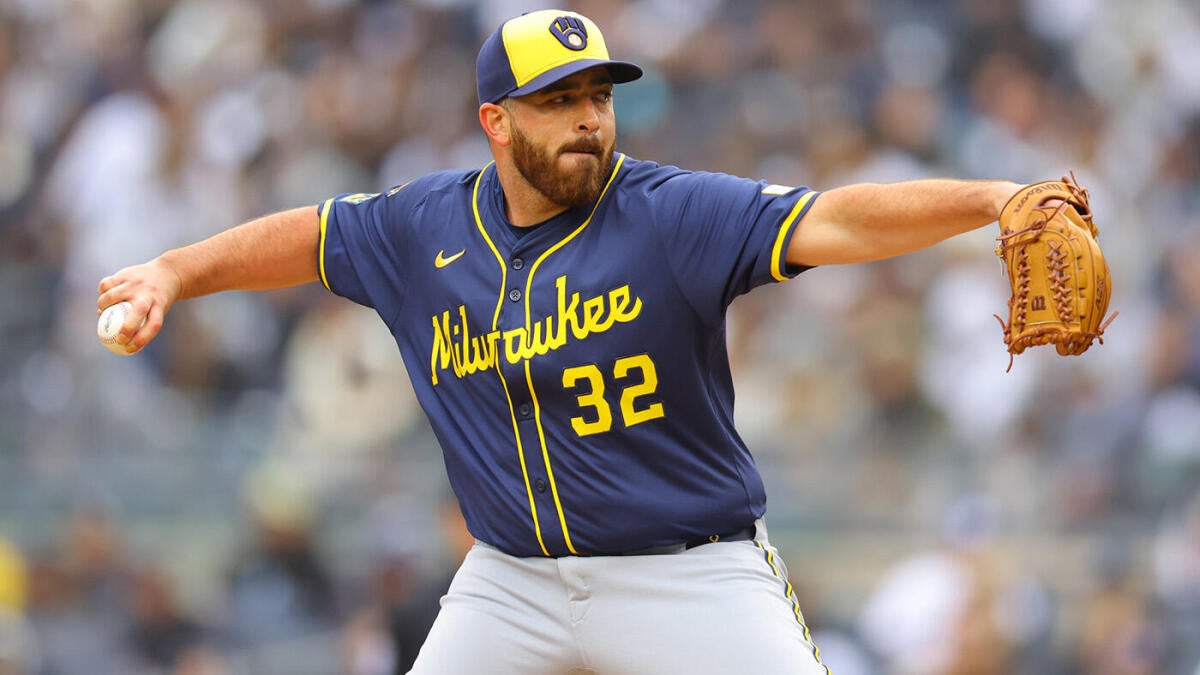Brewing Change: How the Brewers-White Sox Deal Reflects Baseball’s Subtle Art of Fit and Opportunity
Setting the Stage: When Roles Define Moves
A trade between the Milwaukee Brewers and Chicago White Sox involving right-handed pitcher Aaron Civale and first baseman Andrew Vaughn unfolded rapidly, sparked by Civale’s request to leave the Brewers after a role shift from starter to bullpen. While not a blockbuster headline, this exchange vividly illustrates how nuanced factors—like player roles, organizational needs, and growth potential—transform transactions into strategic chess moves rather than mere statistical swaps.
The Players: Beyond Numbers to Nuance
Aaron Civale: The Starter Seeking Stability
Aaron Civale arrived in Milwaukee with a reputation as a reliable mid-rotation starter, boasting solid numbers including a 6-3 record with a 3.53 ERA over 14 starts after joining midseason last year. Yet, this year’s dip to a 4.91 ERA and a move to the bullpen upset the equilibrium for him. His insistence on starting—not just pitching—speaks to the vital role identity and professional fulfillment play in sports. For the White Sox, who have been exploring rotation depth, Civale represents an immediate plug-in option, bringing experience and a fresh arm eager for opportunity.
Andrew Vaughn: Unlocking Potential Amidst Struggles
Andrew Vaughn’s profile is that of a young, left-handed bat with power potential and positional versatility, but his recent batting stats—.189 average and limited on-base success—signal growing pains. Assigning him to Triple-A post-trade reveals the Brewers’ intention to nurture his talent with some seasoning rather than an immediate impact expectation. Vaughn’s youth and skill set embody a “projectable” asset, suggesting the Brewers prioritize developmental upside amid short-term challenges.
The Strategic Dance: Why This Trade Makes Sense
From Milwaukee’s perspective, swapping an experienced starter now leaning toward bullpen duties for a younger offensive asset aligns with long-term roster flexibility and potential offensive enhancement. Meanwhile, the White Sox gain a starting pitcher who fits their immediate rotation needs, highlighting a focus on stabilizing pitching performance during their rebuild.
Financial considerations are subtle but meaningful—despite neither contract being drastically different, they included cash components to smooth salary disparities. This attention hints that both front offices carefully balanced fiscal responsibility with on-field needs.
Immediate Ripples and Future Currents
For the Brewers, Vaughn’s initial demotion to Triple-A implies a patient approach, betting on refinement to eventually pay offensive dividends. It may also signal a broader strategic shift prioritizing positional versatility and offensive depth. Brewers fans might view this as an investment in the future, even if the payoff isn’t instant.
The White Sox, conversely, gain a known quantity in Civale, tasked immediately with rotation duties. In a team still calibrating its core, adding a pitcher who demands a starter’s role may stabilize parts of a struggling staff and send a message about valuing players’ preferred roles.
Evaluating Success: Fit Over Flash
This trade doesn’t glitter statistically. Both Civale and Vaughn have underperformed this season from a wins above replacement (WAR) perspective. Still, the deal’s merit shines through alignment rather than raw numbers. Civale’s desire to start combined with Chicago’s rotation needs, alongside Milwaukee’s embrace of Vaughn’s developmental promise, reveals a transaction grounded in synergy.
Closing the Inning: A Trade of Purpose and Potential
This swap stands as a testament to baseball’s intricate equilibrium between player aspiration and team strategy. Civale’s insistence on starting underscores the human element driving roster moves, while the Brewers’ quick pivot to Vaughn demonstrates agility in talent management. Neither side courted stardom with this trade; instead, they orchestrated fit, potential, and opportunity—a subtle yet potent recipe for building toward success.
In short, the Brewers-White Sox exchange offers a clear-eyed reminder: in baseball, as in life, the right role can be as valuable as raw talent—and sometimes, change is the best pitch a team can make.











